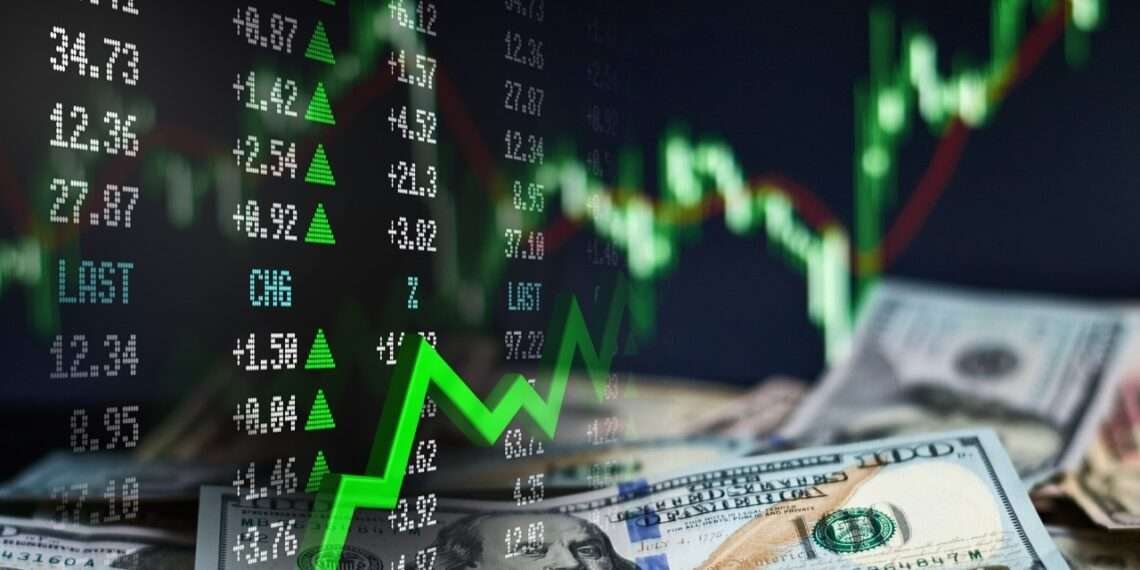The aggregate market capitalisation of the S&P 500 index companies grew 22.1 per cent year-on-year, with total value rising from $34.8 trillion to $42.5 trillion, according to GlobalData,
The leading data and analytics company found that the information technology sector generated the most market value over the period, followed by financials and communication services.
Overall, information technology generated more than $2.3 trillion in its market value over the period, which helped it generate an aggregate market cap of $11.4 trillion. This was followed by financials, which reached an aggregate market cap of $4.6 trillion and communication services, with an aggregate market cap of $6.2 trillion.
Parth Vala, Analyst at GlobalData, said: “Over the period, the S&P 500 index posted an annual return of 21.6%, which was significantly up by 101.8% from its lowest level on 23 March 2020. Companies ranked in the top 10 stocks Apple, Microsoft, Amazon, Alphabet, Tesla, Meta Platforms, Berkshire Hathaway, J&J, Visa, and NVIDIA— accounted for 26.5% of the S&P 500’s aggregate market cap.”

As part of the top themes identified by GlobalData’s Thematic Research, GlobalData found that technology, media and telecoms (TMT) space continued to be the biggest sector in terms of both mergers & acquisitions (M&A) deal value and volume, with 12,585 deals worth around $1.2 trillion recorded in 2021.
Furthermore, Mergers&Acquisition (M&A) deal value grew by 22 per cent from $1 trillion from 9,942 deals in 2020 to $1.2 trillion from 12,585 deals in 2021. In terms of market value percentage growth, energy companies outpaced other sectors, having seen 68.4 per cent growth over the period, and reached a market cap of $1.3 trillion.
Performance of Stocks in Different Sectors
Energy constituents growing more than 50 per cent included Devon Energy (209%), Marathon Oil (165.2%), Diamondback (155.2%), Coterra (143.9%), APA (123.8%), EOG Resources (119.4%), ConocoPhillips (115.6%), Pioneer Natural Resources (+104.5%), Occidental (88.3%), Schlumberger (77.3%), Halliburton (76.6%), Hess (72.4%), Exxon Mobil (69.6%), Marathon (57.3%), Chevron (54.4%), and ONEOK (52.9%).
The real estate sector reported impressive growth in its market cap, reaching around $1 trillion and representing an annual growth of over 32%. Some of the top performers included Kimco Realty (109.4% growth), Realty Income (78.1%), Extra Space Storage (77.5%), and CBRE Group (65.8%).
Although the ‘consumer discretionary sector’ had a growth rate of 11.3 per cent, generating $5.1 trillion in market value, it was the slowest-growing sector. Top performers that grew more than 50 per cent were Ford Motor (93.6%), AutoZone (61%), Expedia (58.2%), and Tractor Supply (50.5%). The companies that lost more than 15 per cent in their market value were Best Buy (-15.2%), VF Corp (-15.4%), and Etsy (-20.7%).
“With the ongoing Russia-Ukraine conflict, the S&P 500 index was down by 5.7 per cent as of March 10, 2022, from the level it was at on January 31, 2022. The prolonged conflict could further affect the market valuation of S&P 500 constituents.”
Parth Vala

In terms of aggregate market value to number of constituents, communication services led with a value of $269.5 billion, followed by information technology ($149.6 billion), consumer discretionary ($84.5 billion), consumer staples ($84.3 billion), health care ($79.9 billion), financials ($69.2 billion), energy ($62.1 billion), industrials ($43.4 billion), real estate ($36 billion), materials ($35.1 billion), and utilities ($34.7 billion).
The top 10 big tech names- Apple, Microsoft, Amazon, Alphabet, Tesla Meta platforms, Berkshire Hathaway, J&J, Visa, and NVIDIA dominated S&P 500 index in January 2020 and continue to provide value for investors despite the decline in the index due to the Russia-Ukraine war.
READ ALSO: Economic Freedom: Ghana Ranks 9th in sub-Saharan Africa























